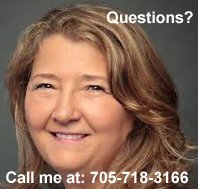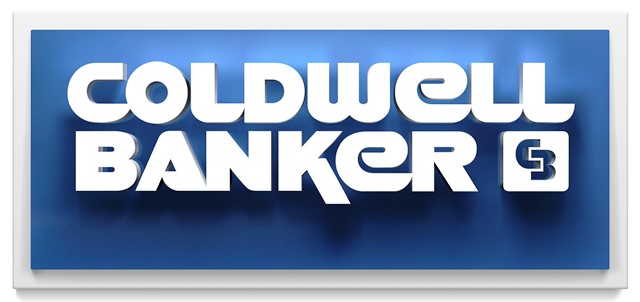What You Can Afford...
If you're thinking of purchasing your first home, you probably have a lot of great ideas about what you'd like.
You know that you may want several thousand square feet of living space, a two-car garage, large fenced-in lot, one or two fireplaces and a panoramic view.
|
It may be time for a reality check, because chances are that you really didn't think about what you really can afford... Most first-time buyers want their dream home right away. However, that dream home likely sells for several hundred thousand dollars and the down payment is more than you earn in two years. |
Not to mention the mortgage payments - which are three times your monthly take-home salary...
The best way to deal with this reality is to match your financial capabilities with the home that meets as many of your needs as possible.
Now is the time to find out what you can afford.
Many first-time buyers purchase what is commonly known as a starter home. There's nothing wrong with this approach.
|
In fact, it's good common sense to avoid buying a home that will stretch your budget to it's breaking point. Remember, the starter home is just that - a way to get started in long-term real estate investment, it allows you to make the initial purchase based on what you can afford at the moment. To see what you can afford, you should take a close look at your financial situation. |
The vast majority of home buyers lack the funds required to buy a home without assistance from a bank or other financial institution, a lender.
So, for most of us, buying our first home means combining our savings with money borrowed through a special type of borrowing arrangement called a mortgage.
Borrowing to purchase is not only acceptable, it's desirable.
Even people buying millions of dollars' worth of real estate borrow to make the purchase.
There are two types of costs in buying a home:
The amount of money you'll need for the initial purchase; this consists mainly of the down payment and other costs such as legal fees and taxes
The ongoing costs of paying back your mortgage, along with monthly operating costs for utilities, maintenance, insurance and annual property taxes
Costs of buying a home:
Down payment
Mortgage
Legal fees
Utilities
Inspection fees
Maintenance
Taxes
Insurance
Property taxes
When lenders assess your ability to buy, they look at your ability to pay both types of costs in determining how much money they will lend you.
Before you ever visit a lender, you can predetermine this amount, using the same formulas they do.
Lenders use several factors in judging your ability to handle a mortgage, including your income, employment record and credit worthiness.
However, one way you can find out what you can afford is to look at the amount of money you have available for a down payment.
The most common mortgage is a conventional mortgage. In this type of arrangement, lenders will loan up to 75 per cent of the appraised value of the property or the purchase price - whichever is lower. The remaining 25 per cent is the amount you will contribute as down payment.
If you want to buy a home that has an appraised value of $200,000, a lender may loan you 75 per cent or $150,000 on a conventional mortgage when you contribute a down payment of $50,000.
If you plan to borrow funds through a conventional mortgage, multiply the money you have available for a down payment by four. For example, if you have access to $40,000, you may be able to purchase a home with an appraised value of $160,000 ($40,000 x 4 = $160,000).
This assumes, of course, that you have sufficient income to make the payments on a $120,000 mortgage (75 per cent of $160,000). Most lenders will not permit a borrower to take on a debt load the borrower can't carry. That's why reputable lenders "qualify" potential borrowers before issuing mortgages. They too need to know what you can afford, before they give you the money.
Most lenders say that your monthly housing expenses (mortgage payment and taxes), plus condominium maintenance fee, if applicable, would not exceed 30 per cent of your monthly gross family income.
This is called your Gross Debt Service, or (GDS) ratio. Some lenders will go as high as 35 per cent, depending upon a number of variables.
Lenders also use a second calculation in qualifying you for a mortgage. It's called the Total Debt Service, or (TDS) ratio.
Generally speaking, no more than 40 per cent of your gross family income may be used when calculating the amount you can afford to pay for mortgage payments and taxes plus other fixed monthly expenses.
These other fixed costs are your ongoing commitments and can include auto, student or personal loans, as well as revolving charge accounts. Again, the 40 per cent calculation may vary slightly among lenders.
By knowing exactly what you can afford, you can make your home purchase with confidence.
Article provided with permission of Ontario Real Estate Association
Follow the guide to the next chapter, learn tips on choosing the neighborhood that’s right for you.
Return to top of What you Can Afford page.
Return to Buyers page.
Page Glossary
Appraised Value
A professional assessment of a property's fair market value, based on an appraiser's analysis of the property, and neighboring properties' comparisons when available.
Down Payment
Amount of money, buyers have available in cash to allocate towards the total purchase price of the home they are buying.
Gross Debt Service GDS
The percentage of gross income required to cover monthly payments associated with housing costs. Most lenders recommend that the GDS ratio be no more than 32% of your gross (before tax) monthly income.
Total Debt Service TDS
The percentage of gross annual income required to cover payments associated with housing and all other debts and obligations, such as car loans and credit cards.
Mortgage
A security over property given to the lender for the repayment of principal and the payment of interest on the loan. A mortgage over land is registered or noted on the Certificate of Title to that land. The party that has the benefit of the mortgage (usually the lender) is called the mortgagee.
Conventional Mortgage
This kind of mortgage requires that you make a down payment of at least 25 per cent of the appraised value, ie if the appraised valued is $200,000, a down payment of $50,000 or more is required for it to be considered conventional.
Mortgage Payments
The regular installments made towards paying back the principal and interest on a mortgage.
Starter Home
Generally a smaller, more modest home that a home buyer might purchase for his or her first home due to budget or lifestyle concerns.
Lender
A person, business or financial institution from whom one borrows or to whom one owes money. Also referred to as a creditor.
Return to top
Return to Buyers page.
I'm Always Here to Help
If you have questions about up-to-date market conditions, would like to get my Price Analysis, or simply would like to know what that home next door is listed for... I'm always available to provide that information.
Perhaps you are considering a sale, but are just not sure what would be the best way to proceed in this changing market.
Or maybe you are the First Time Buyer, excited to enter the Housing Market, and have more questions than your would like to handle on your own...
Please give me a call at 705-241-4249
Return to Home page.








